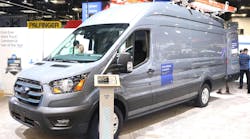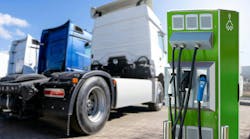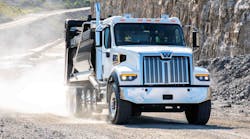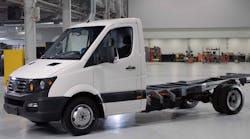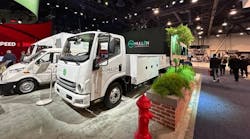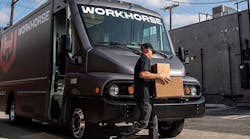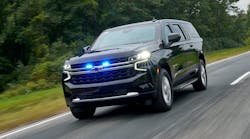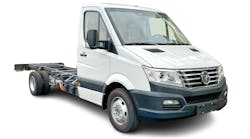Fiat Chrysler Automobiles (FCA) has denied that certain of its model year 2014-2016 Ram 1500 pickups and Jeep Cherokee SUVs with diesel engines violate emissions requirements. The automaker's response came promptly yesterday after the U.S. Environmental Protection Agency (EPA) released the violation notice it sent FCA.
Specifically, EPA claims to have found eight different engine management software programs that FCA didn't disclose present in the control modules of some 104,000 vehicles with 3.0L diesels. That the software programs — which EPA refers to as "auxiliary emission control devices" in the violation notice — are included must be documented in certificates of conformity required to sell vehicles in the United States.
EPA further alleges that the software can increase harmful emissions. One or more of the programs can cause "excess emissions of nitrogen oxides (NOx) under various operating conditions that may reasonably be expected to be encountered in normal vehicle operation and use," the agency states. EPA says that unless FCA can show the software falls under "one of the narrow exclusions" under the federal Clean Air Act, the allegedly undisclosed programs "would constitute defeat devices that reduce the effectiveness of the vehicles' emission control system."
Along with EPA, the California Air Resources Board (CARB) also is investigating FCA and has issued the company a violation notice. CARB was quick to connect the situation to the Volkswagen diesel emissions cheating scandal that erupted in 2015 and resulted in that company's nearly $15 billion settlement with the government.
"Once again, a major automaker has made the business decision to skirt the rules and got caught," stated CARB Chairman Mary D. Nichols. "CARB and U.S. EPA made a commitment to enhanced testing as the Volkswagen case developed, and this is a result of that collaboration."
Meanwhile, in its response to the violation notices, FCA not only states that it "believes its emission control systems meet the applicable requirements," the company appears to indicate by its choice of words that this is no "aha" moment and it's been involved in a good deal of back-and-forth on the matter.
"FCA US has spent months providing voluminous information in response to requests from EPA and other governmental authorities and has sought to explain its emissions control technology to EPA representatives," the automaker states.
In the response, FCA also refers to the incoming Trump administration and that it hopes to work out the situation "expeditiously" with the new leadership and appointed officials.
Notably — or perhaps ironically — FCA's CEO Sergio Marchionne alluded to the Volkswagen scandal earlier this week in press conferences to announce the company's major people and manufacturing plant investments as well as a new Jeep pickup truck on the way.
"Because of events, and without trying to attribute blame or assign responsibility for any of this, diesel has now acquired an incredibly bad reputation," Marchionne said. He contended that diesel power has played a large role in meeting more stringent emissions requirements such as those Europe has put in place, but the cost of "scrubbing" technology to make diesel cleaner is becoming prohibitive.
"In terms of the viability of the technology, it is at least relatively clear to me that [diesel] is an essential element of the mix of solutions that are required to try and meet the emission regulations," he told reporters. "What is happening, unfortunately, is that as we move up the level of technological intervention in diesel . . . the cost of that technology is going to push diesel right at the edge of the economically possible."
"These engines, fully loaded up with scrubbing equipment — whether you include SCR [selective catalytic reduction] or some type of scrubbing mechanism associated with emissions — are going to push the price of diesel solutions beyond the combination of gas and electrical," Marchionne continued, adding that diesel's viability in passenger cars and trucks could be in doubt going forward.
